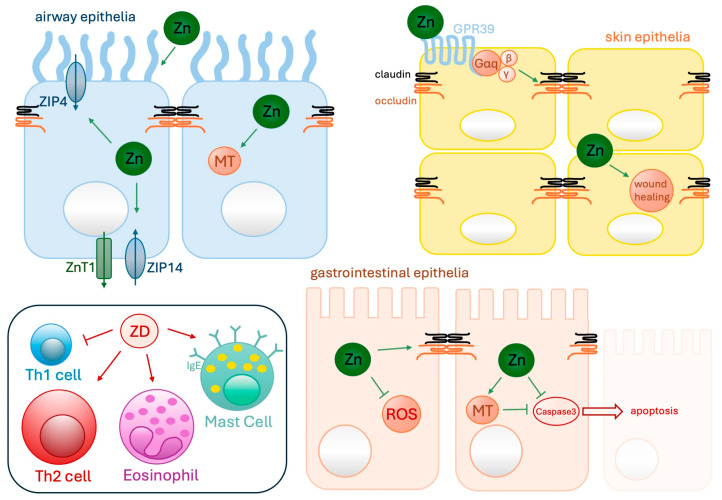Figure 1.
Zinc and cellular processes in human airway epithelia, skin epithelia, and gastrointestinal epithelia. Zinc supplementation normalizes zinc-transporter (ZnT1, ZIP4/14) expression and increases metallothionein (MT) expression. Tight junction stability is enhanced by activation of the G-protein coupled receptor GPR39 (see skin epithelia; Gαq-receptor; Gαq: G protein alpha q subunit), leading to increased occludin (orange transmembrane protein) and claudin (black transmembrane protein) stability, which assist epithelium repair. Cellular resistance against apoptosis by inhibiting caspase-3 activity is forced, and toxin-induced reactive oxygen species (ROS) production is reduced due to the antioxidant activity of metallothionein, which dampens the inflammatory immune response. Zinc deficiency (ZD) triggers differentiation of mast cells within the bone marrow and mast cells contain increased numbers of specific granules. Moreover, the T helper (Th)1/Th2 ratio is imbalanced by zinc deficiency, showing a reduction in Th1 cells. Thus, Th2 cell responses are triggered, leading to elevated eosinophil counts and altered humoral immunity by activating B cells and antibody production, which is mainly involved in allergic diseases.

